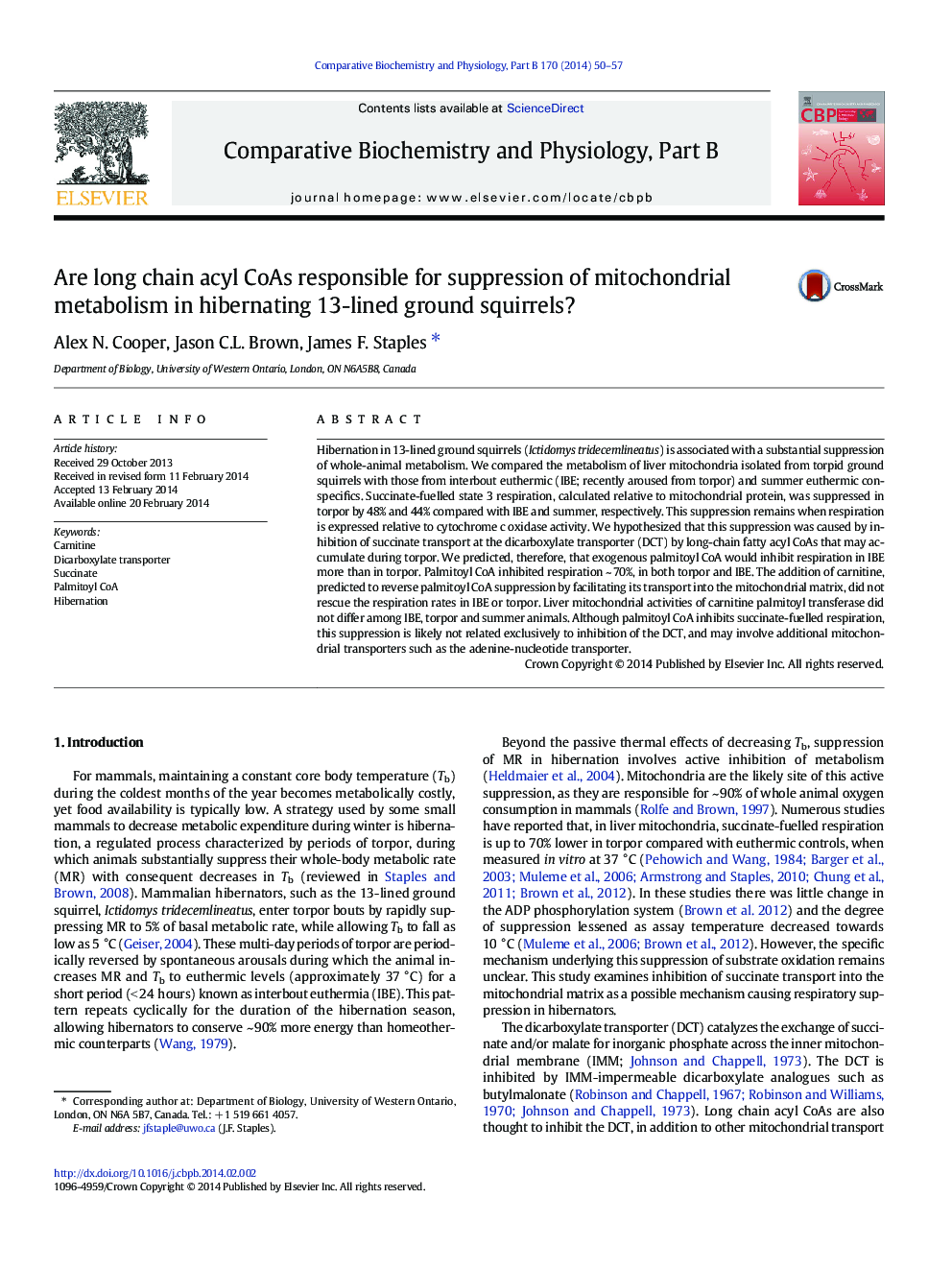| Article ID | Journal | Published Year | Pages | File Type |
|---|---|---|---|---|
| 1975208 | Comparative Biochemistry and Physiology Part B: Biochemistry and Molecular Biology | 2014 | 8 Pages |
Hibernation in 13-lined ground squirrels (Ictidomys tridecemlineatus) is associated with a substantial suppression of whole-animal metabolism. We compared the metabolism of liver mitochondria isolated from torpid ground squirrels with those from interbout euthermic (IBE; recently aroused from torpor) and summer euthermic conspecifics. Succinate-fuelled state 3 respiration, calculated relative to mitochondrial protein, was suppressed in torpor by 48% and 44% compared with IBE and summer, respectively. This suppression remains when respiration is expressed relative to cytochrome c oxidase activity. We hypothesized that this suppression was caused by inhibition of succinate transport at the dicarboxylate transporter (DCT) by long-chain fatty acyl CoAs that may accumulate during torpor. We predicted, therefore, that exogenous palmitoyl CoA would inhibit respiration in IBE more than in torpor. Palmitoyl CoA inhibited respiration ~ 70%, in both torpor and IBE. The addition of carnitine, predicted to reverse palmitoyl CoA suppression by facilitating its transport into the mitochondrial matrix, did not rescue the respiration rates in IBE or torpor. Liver mitochondrial activities of carnitine palmitoyl transferase did not differ among IBE, torpor and summer animals. Although palmitoyl CoA inhibits succinate-fuelled respiration, this suppression is likely not related exclusively to inhibition of the DCT, and may involve additional mitochondrial transporters such as the adenine-nucleotide transporter.
